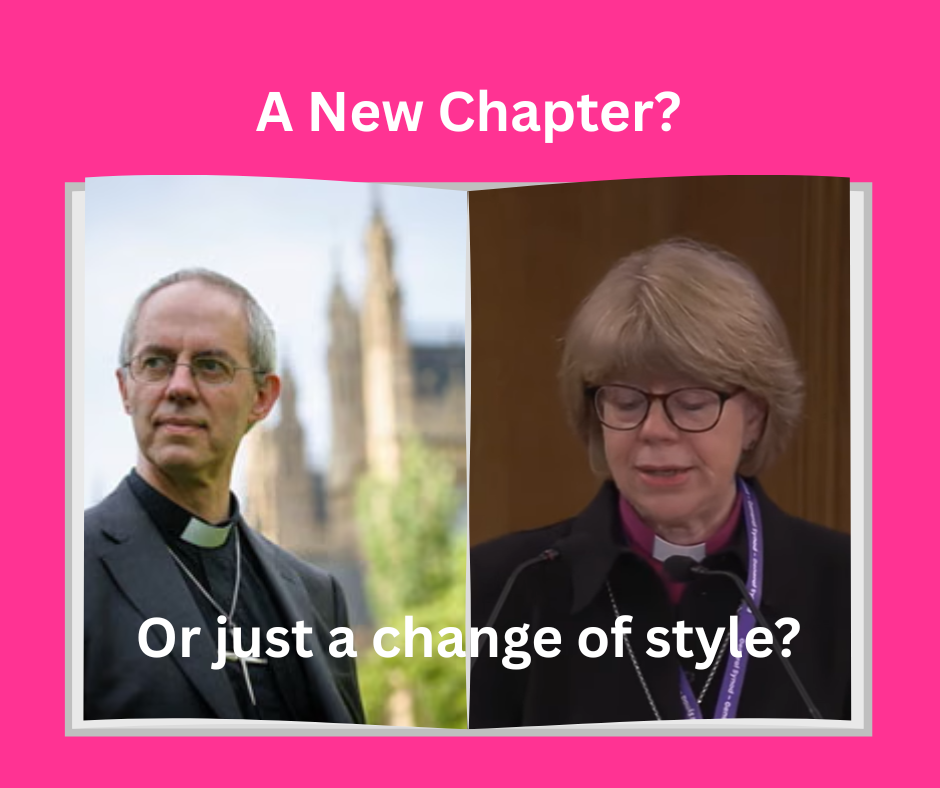How Bishop's Voices Are(n't) heard at Lambeth
- Anglican Futures

- Jul 31, 2022
- 3 min read
Updated: Aug 13, 2024
Properly practiced the Delphi Method employs rounds of written questionnaires, by which experts provide answers to a facilitator, who collates them into a summary report, which is then put back to the experts to revise their answers in the light of the views of others. It is really designed for technical questions, the forecasting of markets etc.
Mini-Delphi takes a similar approach but is less formal and is used face-to-face, but generally for things like risk management.
A debased version of the method simply sits people in groups, asks them to appoint a scribe who then 'feeds back' to a facilitator, who reduces their thoughts to a summary. The problems are obvious - some views will never be expressed, those that are have to be recorded accurately and impartially and then the facilitator has to interpret properly what has been written and in turn produce a disinterested and adequate report to take matters forward. By the end, groups often cannot recognise “their own” contribution.
The scope for either, or both, misunderstanding and manipulation is all too obvious - the contributors surrender ownership of their views to someone who can entirely misuse and misrepresent them.
Debased mini-delphi takes a method designed for particular types of problems and then empties it of any efficacy, while all the time presenting the process as open and consultative, fair and systematic.
This is the third post on this blog concerning the 'democratic deficit' at the Lambeth Conference. It will surprise absolutely no one that, as the Lambeth Calls are discussed, the arrangement used is debased mini-delphi. The thoughts of groups of seven bishops, disappear via some type of note-taker into the blackhole of the Lambeth organisation.
The blackhole has a name worthy of any unchecked bureaucracy, “the Phase 3 implementation group”. Apparently, it is they, whoever they are, who will, “…agree on the next steps and communicate further with the provinces and dioceses”. So that’s alright then.
Audrey Scanlan, Bishop of the Episcopal Diocese of Central Pennsylvania, described her experience,
“After lunch we returned to the giant plenary space and were greeted by a sea of round tables with numbers on them, corresponding to our bible study groups and reviewed the first of the “Calls” that we are to issue from this conference. To say that this was a mess of a process with ill-informed participants and facilitators and unclear directions would be… too kind”.
Having described the four parts of the “Call”, themselves labyrinthine, she returns to her theme,
“It wasn’t the content, necessarily, that made this excruciating as much as the bad process. Based on a 20-minute conversation at our tables in a giant stadium-sized room that was at least 85 degrees Fahrenheit, we then got to cast our vote- I mean “affirmation”.
As set out here there is no common mind amongst the bishops as to what “casting an affirmation” is. With admirable integrity Bishop Scanlan “voted” “for” “further discernment” purely because she couldn’t know what she was voting on until she had seen the final draft.
She added,
“Now this isn’t too big a deal when discussing things like Evangelism and Mission. But hold on to your hats when we get to other things- like “human dignity”.
This experience is that of someone who, by any standards, is a theological liberal but, on this, like so many things at Lambeth, (see here) there is broad agreement across the spectrum.
The Delphi Method is named after the Oracle Pythia consulted for a millennium by the likes of Sophocles, Alexander the Great, and Croesus of Lydia but what is happening in Lambeth is anything but prophetic, in fact it is positively and intentionally Delphic - ambiguous and abstruse.




The mini hints throughout this post paint a clear picture of how the process at Lambeth is anything but transparent. The comparison to a 'debased mini-Delphi' really drives home the concerns about misrepresentation and lack of true dialogue.